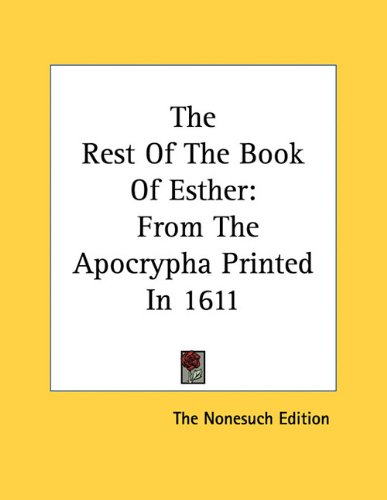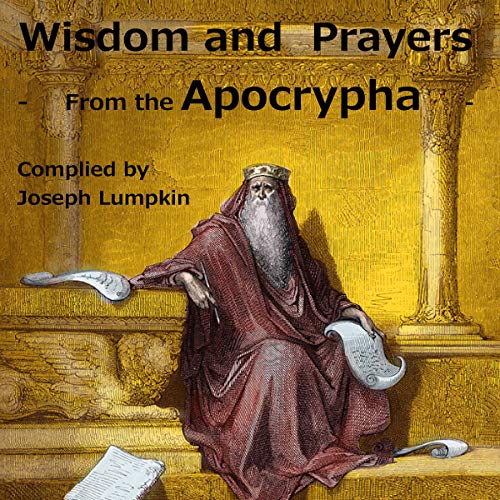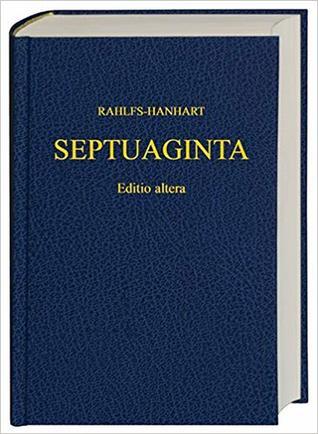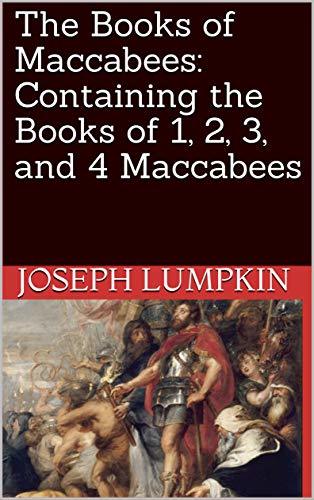


Books in series

The Book of Wisdom of Solomon
Christian Apocrypha Series
2021

Books of the Maccabees
2012

The Book of Tobit
Old Testament Scripture
2015

Judith
From The Apocrypha Printed In 1611
150

The Rest Of The Book Of Esther
From The Apocrypha Printed In 1611
2010
The Prayer of Manasseh
2013

The Song of the Three Holy Children
1986

2 Esdras
1765

Wisdom And Prayers From The Apocrypha
Containing: The Prayer of Azariah Prayer of Manasseh (Manassas) Wisdom of Jesus, Son of Sirach (also called Ecclesiasticus) Wisdom of Solomon
2019

3 Maccabees Septuagint Text
2025

The Books of Maccabees
Containing the Books of 1, 2, 3, and 4 Maccabees
2019
Authors
born circa 990 BC reigned from 970 BC floruit tenth century BC died 931 BC Wisdom and architectural projects of Solomon (Hebrew for "his peace"), famous king of Israel, included the Temple in Jerusalem. Bathsheba bore Solomon, their second son, to David. https://en.wikipedia.org/wiki/Solomon

Pauline Diana Baynes was an English book illustrator, whose work encompassed more than 100 books, notably those by C.S. Lewis and J.R.R. Tolkien. Pauline is probably best known for her illustrations in The Chronicles of Narnia by C.S. Lewis. She was also J.R.R. Tolkien's chosen illustrator: her drawings appear in Farmer Giles of Ham, The Adventures of Tom Bombadil, Smith of Wootton Major, Tree and Leaf, and after Tolkien's death the poem Bilbo's Last Song. Pauline Baynes began her career with little formal training. After spending her early years in India, where her father was commissioner in Agra, she and her elder sister came to England for their schooling. When their father retired, their parents settled near Farnham in Surrey and Pauline, as the unmarried daughter, found herself looking after them during the day and trying to illustrate at night. Pauline attended the Slade School of Fine Art, where her sister was completing a diploma course, but after only a year she volunteered to work for the Ministry of Defence, painting camouflage. However, since her kind of attention to detail and accuracy were skills essential for map-making, she was soon transferred to another department to draw maps. This experience was very helpful when she later drew maps of Narnia for Jack, and of Middle-earth for his friend J.R.R. Tolkien. Over the years Pauline Baynes created many new illustrations for use on book jackets, as well as colouring the original illustrations. In 1989, she made a series of full-page colour paintings for two books, one called The Land of Narnia, and the other a beautiful, deluxe version of The Lion, The Witch and The Wardrobe. She was awarded the prestigious Kate Greenaway Medal in 1968 in recognition of her outstanding contribution to children's illustration.
HardPress™ Publishing specializes in bringing thousands of Classic, Hard-to-Find books back into print. Our Classics Series spans a wide variety of topics including Architecture, Art, Biography and Autobiography, Children & Young Adult, Drama, Education, Fiction, History, Language Arts & Disciplines, Law, Literary Collection, Music, Poetry, Psychology, Science.... and many more! Why not check out our Classic Comic eBook Selection & our Wall Art Selection also!

The American Bible Society (ABS) is an interconfessional, non-denominational, nonprofit organization, founded on May 11, 1816 in New York City, which publishes, distributes and translates the Bible and provides study aids and other tools to help people engage with the Bible. It is probably best known for its Good News Translation of the Bible, with its contemporary vernacular. They also publish the Contemporary English Version. ABS's headquarters relocated from New York City to Philadelphia in August 2015.